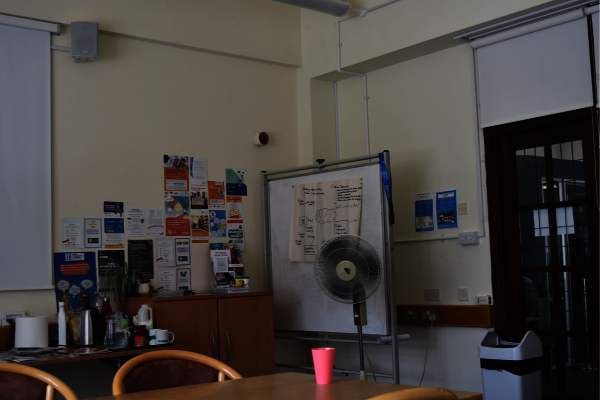Action on ageing and health – led by data and insight

With ‘everyone having the health support they need’ a key part of the Pledge Action Framework, this case study from Arla Foods, the fourth largest dairy company in the world, shows how a data-led approach to employee health not only makes business sense, but can also save lives.
Top tips:
- Consider using health kiosks to generate valuable workforce health data
- Build enthusiasm and buy-in through an active communications programme
- Putting in place measures to address key health issues is good for everyone
The strategic approach to health and wellbeing at Arla Foods goes back to 2015, when it first launched ‘health kiosks’ at its 13 sites around the UK. These machines enabled employees to test their own health across a whole range of measures, from blood pressure and pulse to diet, exercise, sleep, stress and body mass index (BMI). Since high blood pressure, BMI and body fat can be age-related, the initiative was particularly beneficial for older workers. At the same time, it provided anonymous data to the company on their colleagues’ overall risk factors.
At its first launch, the idea created excitement but not the wide take-up to really gain traction. The company recognised that a strong communications programme would be necessary to give everyone the motivation and confidence necessary to engage. So it did two things.
Quality of life: Champions
It invested in its 100 most senior leaders, giving them access to health monitors, food intolerance testing and performance coaches. The insights they gained as to how health impacts performance turned many of them into role models and ambassadors for health and wellbeing. It also set up a network of health and wellbeing champions – a group of colleagues on every site who meet monthly to learn, share and talk about health and wellbeing topics. Conversations often revolved around ways to encourage colleagues later in life to change ingrained habits by giving them confidence that it was never too late to make even small changes to diet, exercise or self-care.
Roll forward to 2022 and it is this group of passionate people who were able to make the second round of health kiosks really work by spreading their enthusiasm to their colleagues.
As the kiosks moved from site to site around the country over a two-year period, over half of the company’s 3,800 colleagues continually engaged with them. Kiosks gave each participant a read-out of their ‘wellbeing age’, and healthy competition evolved around this!
The anonymised data that the kiosks provided about colleagues’ health was invaluable. It set a benchmark against which future investment and initiatives could be judged, reinforcing buy-in at leadership team level for the health and wellbeing strategy. And at a very practical level, it identified two important risk factors for the company’s employees: heart health and mental health.
Healthy ageing: Hearts and minds
As a result, Arla Foods set up a healthy hearts and minds campaign in partnership with the British Heart Foundation and Mind. This includes training colleagues in cardiopulmonary resuscitation (CPR) via an app from BHF and installing blood pressure monitors (BPMs) and defibrillators in all sites. The BPMs had an immediate impact on getting people to consider their lifestyles. Highlighting the life-saving change BPMs can make, one colleague who discovered high blood pressure after a health kiosk visit took medical advice and as a result has undergone heart surgery.
Matthew Press, aged 60, one of Arla’s tanker drivers, said ““Introduction of the health kiosk and blood pressure monitors has been a great initiative for us. Even the sceptics regard it as positive. It has made me consider if I’m getting enough sleep and drinking enough water, and check on my diet and fitness. I am sure that blood pressure readings have come down because of the health incentives provided by Arla”.
While the average age of Arla Foods’ workforce is 43, over one-fifth are aged 50 or over and the oldest employee is 75. The health kiosk exercise, which enabled the company to split results by demographic factors and shift patterns, also led to some colleagues job-sharing as they approached later life. This chimed well with being an age-friendly employer, since it was attractive to older workers, giving people the opportunity to work for longer in life if they wanted to.
Arla’s healthcare commitment
Arla’s commitment to their colleagues’ health and wellbeing has seen them shortlisted for a CIPD People Management Award for 2024, in the Best Health and Wellbeing Initiative – private sector category.
Summing up, Catherine Kirkland, Culture and Inclusion Lead, Human Resources says:
“We want to create a great place to work for people of all ages, and keeping healthy is surely front and centre of that. I think just raising awareness, creating dialogue around health, can have an impact on its own.”



